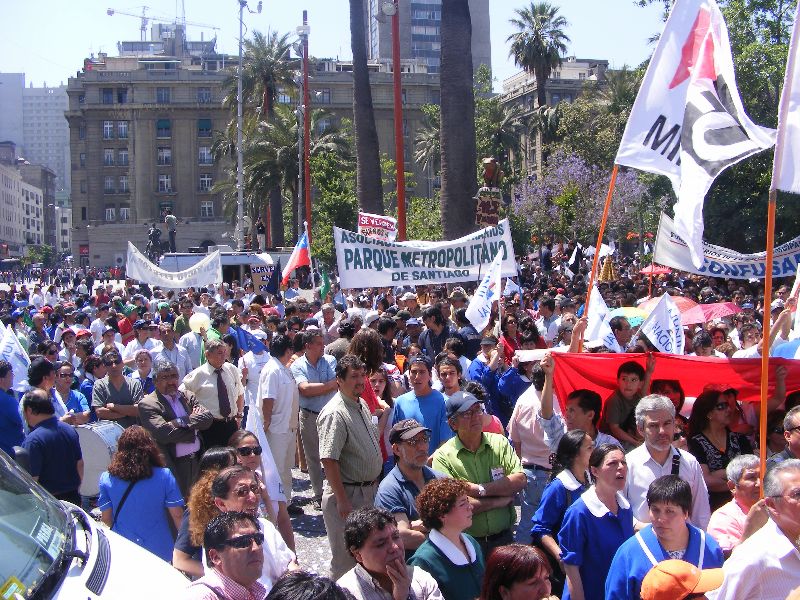– Tim Bowron and Nick Kelly
Photos: ANEF (Chile)
On Monday November 17 over 400 000 public sector workers in Chile began an indefinite nationwide strike demanding a 14.5% pay increase to combat spiralling inflation (9.9% in the last year alone) and the rising cost of living. This was in response to the refusal of the centre-left “Concertación” government of Michelle Bachelet to significantly revise its original 5% wage offer since a 48 hour strike by public sector workers last week.
Meanwhile here in New Zealand where workers are also currently faced with a decline in real wages as well as the prospect of mass redundancies, the Public Servants Association has put out a grovelling press statement praising the incoming National government for its willingness to “engage” with them and offering to provide “constructive suggestions” to National’s promised review of government expenditure:
…the Public Service Association has welcomed John Key’s pledge to engage with unions.
Its national secretary, Brenda Pilott, says the union looks forward to constructively working with the government New Zealanders elected.
“We welcome Mr Key’s commitment to lead a listening, inclusive government and in turn commit to a constructive relationship,” she says.
“Though the PSA is concerned about the possible impact of the promised review in government expenditure, we have constructive suggestions and look forward to an opportunity to discuss them with Mr Key. Our hope is it can be completed without large-scale layoffs or privatisation.” she says.
The PSA has 57,000 members in the public service, NGOs, local government and the health and education sectors.
The reality is that for the last decade this policy of “partnership with the employer” has failed to deliver for PSA members. With the National government-elect strongly signalling it wishes to cut spending in the public sector PSA members need to start fighting to defend their jobs. The only constructive suggestions union leaders should be putting to any government is not to take jobs away from the working class.
The policies of partnership and trying to appeal to the better nature of employers and the government that the PSA has pursued for the last decade will fail its members – and weaken the trade union movement as a whole.
In this respect the PSA has a lot to learn from its Chilean counterparts.


